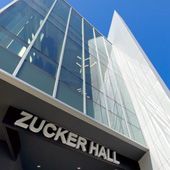History
Since 1964 Trident Technical College has provided quality education and economic development in Berkeley, Charleston and Dorchester counties. The college has grown over the decades, evolving to meet the complex needs of the diverse communities TTC serves and opening new doors to educational opportunities for lifelong learning.
1960s
The Berkeley-Charleston-Dorchester Technical Education Center was founded in 1964 on a 25-acre site as part of a statewide system established by Gov. Ernest F. Hollings to meet the educational and training needs of South Carolina. The center opened with two buildings, 226 students, and programs in industrial and engineering technology.
1970s
To accommodate its increasing growth, the center merged with Palmer College, a private business college in downtown Charleston, to form Trident Technical College. In addition to business, the newly formed college provided a wider variety of programs to the community, including allied health sciences, criminal justice and university transfer programs.
1980s
The 1980s saw additional changes that opened new opportunities to students. Palmer Campus moved to its current site in downtown Charleston, and the college built its Berkeley Campus near Moncks Corner. Technological advances during the decade increased accessibility with the introduction of academic computing, email and televised courses, the first distance learning program.
1990s
The 1990s ushered in dramatic changes in instructional delivery from courses on videotape to courses online. The first dual credit courses offered to high schools marked the beginning of another rapidly growing delivery system, allowing students to begin earning TTC credit while still in high school. In addition, the college converted its credit offerings from a quarter to a semester system. In 1997, the first phase of the Complex for Economic Development opened on a newly purchased 30-acre site adjacent to Main Campus.
2000s
As distance learning options continued to grow, the college continued expansion of physical facilities. Phase two of the Complex for Economic Development, a 230,000- square-foot facility, allowed for the development of both new and redesigned academic services including the Culinary Institute of Charleston. During this decade, enrollment increased 54 percent, and the college responded with additional physical and virtual offerings. In 2008-09 the college opened three new instructional sites: St. Paul’s Parish location, the Dorchester County Career and Technology Center (later Summerville Site at Trolley Road) and the Dorchester County QuickJobs Training Center in St. George.
2010s
To further increase capacity and consolidate offerings, the college opened a new campus in Mount Pleasant, built the Nursing and Science Building in North Charleston and closed the Summerville Site at Trolley Road. To meet new workforce training demands, the college purchased a facility, the TTC Workforce Training Center, and constructed the S.C. Aeronautical Training Center. The dual credit program grew in a new direction with the opening of Berkeley Middle College on Berkeley Campus and the Early College High School on Palmer Campus. With a renewed emphasis on student success, the college redesigned credit offerings based on seven-week terms within the semesters. The Main Campus in North Charleston was renamed the Thornley Campus in 2018.

